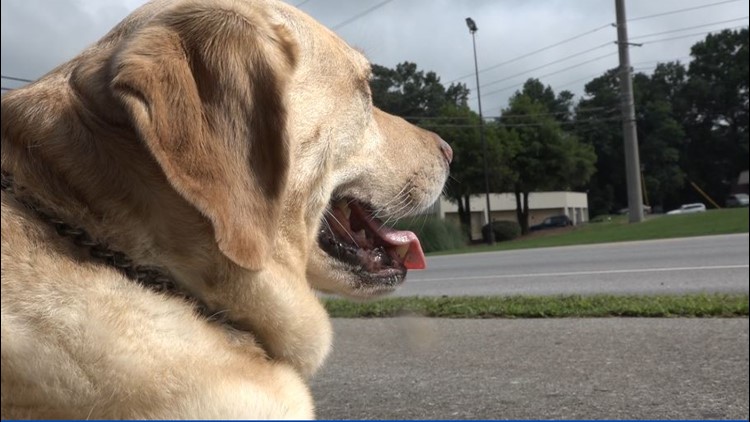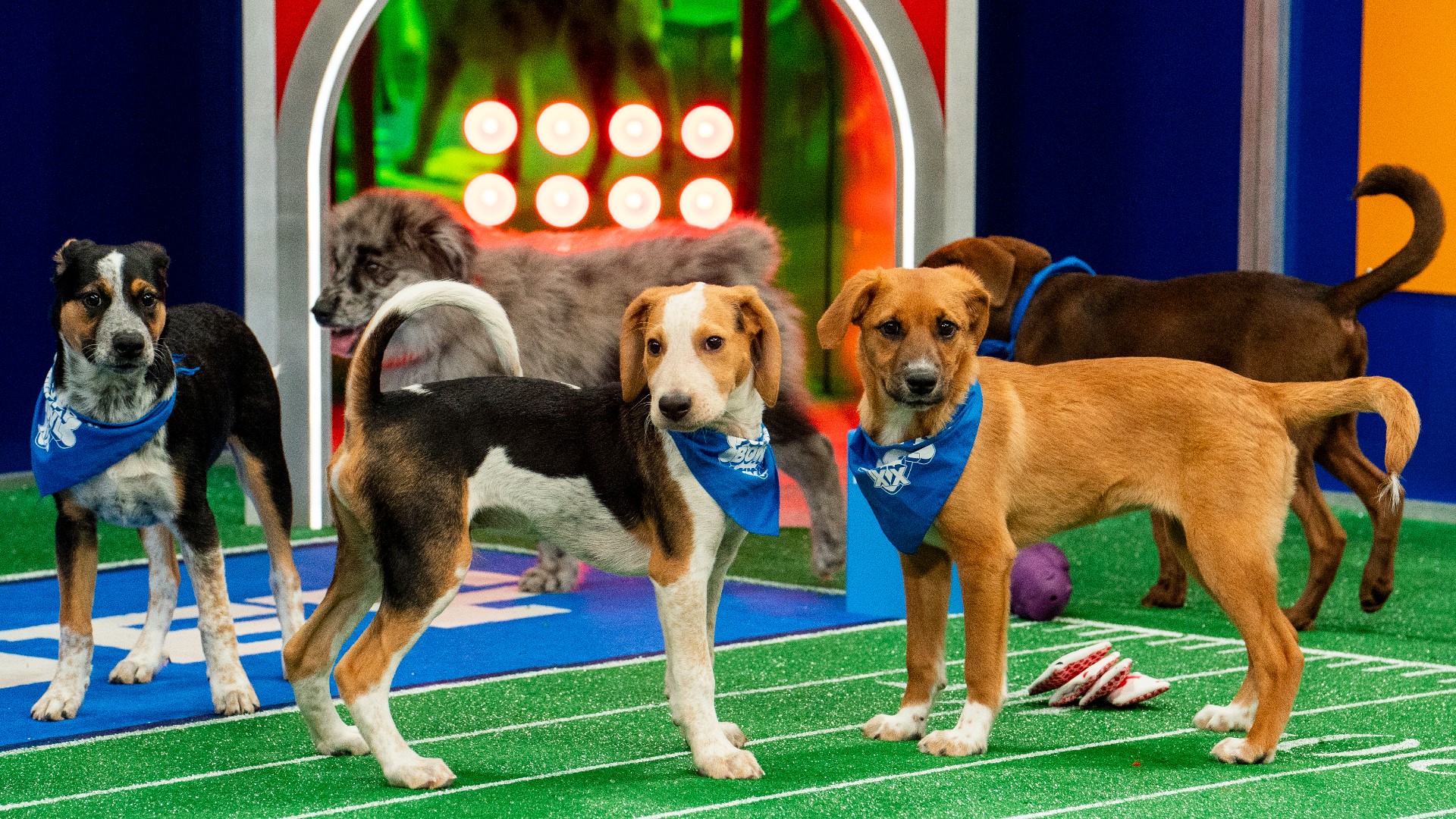"As soon as the harness goes on, they're on the clock. She's got her eyes on everything."
Most people take a simple walk down the street for granted, but for someone with impaired vision, a guide dog is a lifeline. While 11Alive's Puppy with a Purpose has 10 more months of training, Izzy will ultimately be matched by the Guide Dog Foundation to assist those who are blind or with impaired vision.
The pairing takes place at Guide Dog School, where handlers stay while acclimating with their guide dog. For Jamie Marks, a match with Frenchie just clicked.
"They brought Frenchie into my dorm room, and it was like one of those scenes at the movie,' Marks said. "It was just really love at first sight."
The duo has worked together for five years. Marks has Retinitis Pigmentosa, a rare genetic disorder that affects the retina.
"[Frenchie] is extremely smart because I do have some visible vision," Marks told 11Alive. "[Retinitis Pigmentosa] is kind of like a tunnel vision," Marks said. "She knows when I can see ok, and she knows when I'm having a very low vision day, especially at night."
As part of her training with the Guide Dog Foundation, Frenchie knows that when her harness goes on, it's a signal to work.
"As soon as the harness goes on, they're on the clock so to speak," Marks said. "She's got her eyes on everything."
Frenchie assists Marks with their daily routine, helping navigate streets and grocery stores, accompanying her at work at Vision Rehabilitation Services as well as guiding Marks on other outings.
"We really are on the go a lot," Marks said. "Her flexibility, her ability to jump in any car. We were on Lake Lanier the other day. She just goes with it."
Guide dogs typically work seven to ten years, according to Marks, while home can offer a respite for the dogs to relax and break from work.
"It's like when we take off our shoes. The harness comes off, and she runs and she plays and she eats,' Marks said. "We have a big back yard and she's a dog dog."
For Marks, Frenchie is an important part of the family.
"She can sometimes change people's perception of dogs," Marks said. "They step on the elevator with me, and I say 'don't worry, she's just here to be my eyes.'"
The Guide Dog Foundation recommends the following etiquette on guide and service dogs:
- Please don't touch, talk, feed or otherwise distract the dog while he is wearing his harness or vest. You should allow the dog to concentrate and perform for the safety of his handler.
Don't treat the dog as a pet; give him the respect of a working dog.
Speak to the handler, not the dog. Some handlers will allow petting, but be sure to ask before doing so. If allowed, don't pat the dog on the head; stroke the dog on the shoulder area.
If the handler says no when you ask to pet the dog, don’t be offended. The dog (or handler) might be having a bad day, or he might be in a hurry. Remember, a service dog is as vital to a disabled person as a wheelchair or cane. You wouldn't ask to pet their wheelchair or get mad if they wouldn't let you pet their cane.
You should not give the dog commands; allow the handler to do so.
Guide and service dog teams have the right of way.
Don't try to take control in situations unfamiliar to the dog or handler, but please assist the handler upon their request.
When walking with a guide or service dog team, you should not walk on the dog's left side, as it may become distracted or confused. Ask the handler where you should walk. Depending on the situation, they may ask you to walk ahead of them on their right side, or behind them by their right shoulder.
Never attempt to grab or steer the person while the dog is guiding or attempt to hold the dog's harness. You should ask if the handler needs your assistance and, if so, offer your left arm.
Try not to be overprotective or overbearing when the graduate first arrives home with the new dog. Be thoughtful, patient, and try to inspire confidence in the handler. In time, you will admire the expertise of the team.
Don't expect too much too soon, remember, the dog is young and that complete harmony and confidence takes patience, perseverance and time.
Never give the dog table scraps. You should respect the handler's need to give the dog a balanced diet, and to maintain its good habits.
Don't allow anyone to tease or abuse the dog, allow it to rest undisturbed.
Make sure not to allow your pets to challenge or intimidate a guide dog. You should allow them to meet on neutral ground when all parties can be carefully supervised.
A guide and service dog should not jump on furniture or go in areas of a home not mutually agreed upon by the family or handler. You can ask the handler to correct any errant behavior or trespassing.
Never let the dog out of the house unsupervised, and be sure that all doors and/or gates are closed to prevent the dog from exiting your property.



